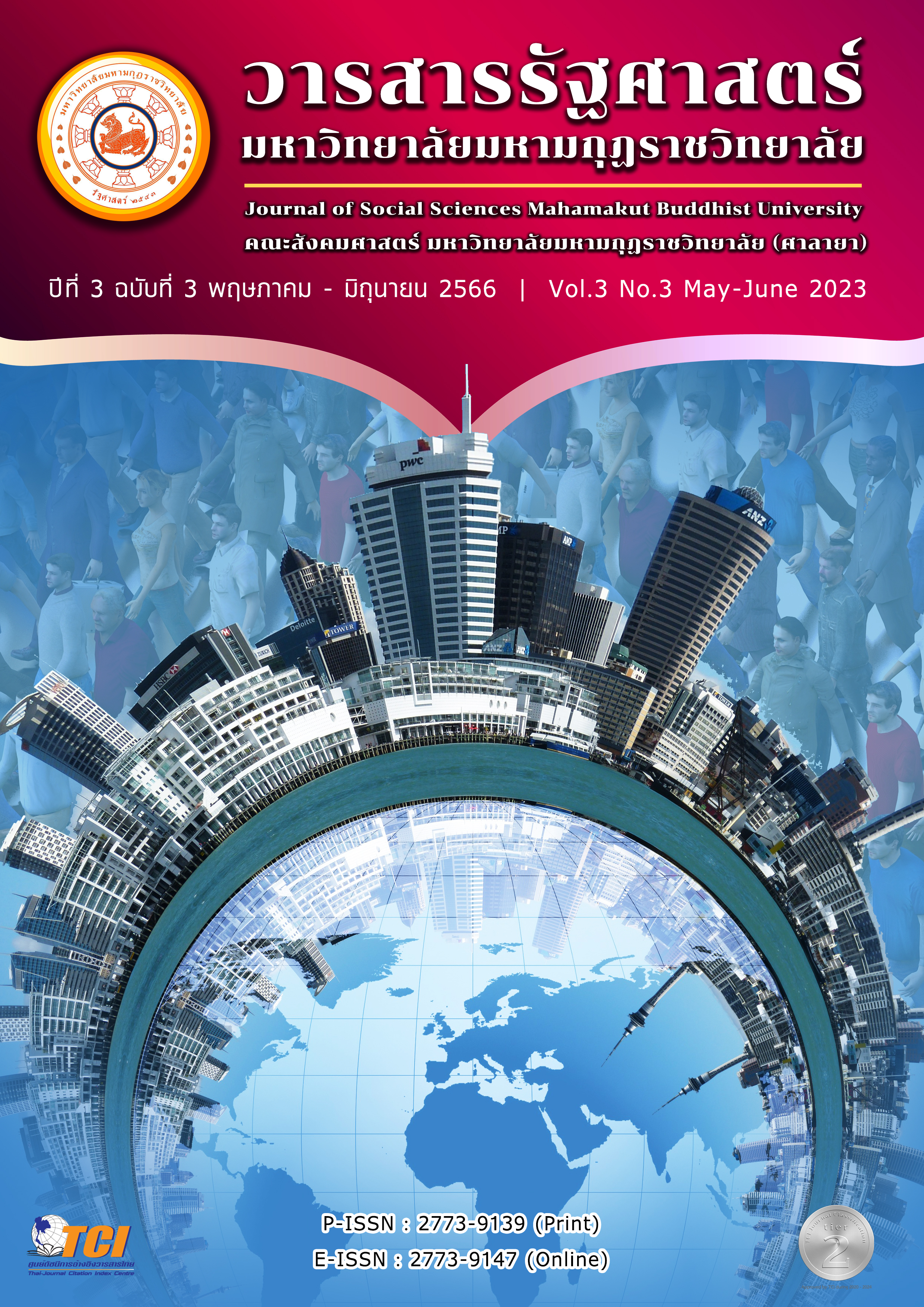QUALITY OF LIFE IN OPERATION OF HOMELAND DEVELOPMENT VOLUNTEER GRADUATES SOUTHERN BORDER PROVINCES ADMINISTRATIVE CENTER
Main Article Content
Abstract
The purposes of this research were 1) to study the quality of work life of the Motherland Development Volunteer Group graduates, and 2) to compare the quality of work life of the Motherland Development Volunteer Group graduates. In the performance of the graduate volunteer group is a quantitative research The sampling population used in this research was a group of 340Homeland Development Volunteer graduates. The questionnaire was used as a tool for data collection. The statistics used in the research were frequency, percentage, mean, standard deviation and test differences. By using t-Test and One-way ANOVA statistics, the statistical significance was set at the 0.05 level.
The results showed that Quality of Life in Practice of Homeland Development Volunteer Graduates of the Southern Border Administrative Center The overall picture is at a high level. Sorted from the most to the least, namely the relationship in the organization. in terms of self-potential development social relations on the balance between work and personal life, followed by progress and job security. Organizational policy. The aspect with the lowest average was the aspect of adequate and fair compensation. The results of the hypothesis testing found that different genders resulted in the quality of work life of graduates of the Motherland Development Volunteers at a statistically significant difference at the 0.05 level. Work area, years of work and average monthly income did not make the Motherland Development Volunteer graduates differ significantly at the 0.05 level. and welfare in various fields in order to strengthen the morale and encouragement of the volunteer graduate staff to develop the motherland more effectively.
Article Details

This work is licensed under a Creative Commons Attribution-NonCommercial-NoDerivatives 4.0 International License.
References
จุฑามาศ วรรณศุภผล. (2556). การศึกษาคุณภาพชีวิตในการทำงานที่มีผลต่อความผูกพันต่อองค์กรกรณีศึกษา กลุ่มบริษัทเอ็มแอนด์เอ. ใน วิทยาลัยพาณิชยศาสตร์ สาขาวิชาบริหารธุรกิจสำหรับผู้บริหาร. มหาวิทยาลัยบูรพา.
ดาเรศ ชูยก. (2557.) การพัฒนาทรัพยากรมนุษย์กับคุณภาพชีวิตการทำงานของข้าราชการ กรมการพัฒนาชุมชนในพื้นที่ 3 จังหวัดชายแดนภาคใต้. วารสารวิจัยราชภัฏเชียงใหม่, 15(2), 27–36.
นูรีศัณย์ อูเซ็ง และประจวบ ทองศรี. (2563). การพัฒนาศักยภาพการปฏิบัติงานของบัณฑิตอาสาพัฒนามาตุภูมิในจังหวัดชายแดนภาคใต้. วารสารศึกษาศาสตร์ มหาวิทยาลัยสงขลานครินทร์ วิทยาเขตปัตตานี, 31(2), 192-210.
วรรณา วงษ์ธง. (2558). แนวทางการพัฒนาคุณภาพชีวิตการทำงานของบุคลากรสายสนับสนุนมหาวิทยาลัยศิลปากร. ใน วิทยานิพนธ์ตามหลักสูตรบริหารธุรกิจมหาบัณฑิต สาขาวิชาการจัดการทั่วไป. มหาวิทยาลัยราชภัฏนครปฐม.
ศูนย์อำนวยการบริหารจังหวัดชายแดนภาคใต้. (2562). ศอ.บต. ผลักดันบัณฑิตอาสาพัฒนามาตุภูมิ 2,249 คน จาก 5 จชต. เป็นผู้นำแห่งการเปลี่ยนแปลง ร่วมพัฒนาพื้นที่เพื่อสร้างความสันติสุขร่วมกัน. เรียกใช้เมื่อ 30 พฤศจิกายน 2565 จากhttps://www.sbpac.go.th/?p=31043.
อภิชัย จตุพรวาที. (2557). ปัจจัยที่มีผลต่อประสิทธิภาพในการปฏิบัติงานของอาสาสมัครคุมประพฤติจังหวัดนครสวรรค์. ใน วิทยานิพนธ์ปริญญาพุทธศาสตรมหาบัณฑิต สาขาวิชารัฐประศาสนศาสตร์. มหาวิทยาลัยมหาจุฬาลงกรณ์ราชวิทยาลัย.
อัญชลีพร พูลเขตนคร. (2557). แนวทางการพัฒนาคุณภาพชีวิตการทำงานของบุคลากรองค์การบริหารส่วนตาบลในจังหวัดกาแพงเพชร. ใน วิทยานิพนธ์ศิลปศาสตรมหาบัณฑิต. มหาวิทยาลัยราชภัฏนครสวรรค์.
Alderfer, Clayton P. (1979). A New Theory of Human Needs : Organizational Behavior and Human Performance. New York : McGraw-Hill Book Co.
Herzberg, F (1959). Federick; Mausner, Bernard; and Synderman, Block the Motivation to Work. New York: John Willey.
Likert, R. A. (1932). A technique for the measurement of attitudes. Archives of Psychology, 140, 5-53
Walton, R. E. (1973). Quality of working life: What is it? Slone Management Review, 15,11-21
Yamane, T. (1976). Statistics: An introductory analysis (2nd ed.). New York: Harper and Row.


